 In the first post, I explained that the Church at the threshold of Vatican II seemed to thrive with all the indices of Church life indicating a boom. This was followed by a decline, rapid in some areas, slow in others, but sure. What happened?
In the first post, I explained that the Church at the threshold of Vatican II seemed to thrive with all the indices of Church life indicating a boom. This was followed by a decline, rapid in some areas, slow in others, but sure. What happened?In an attempt to answer that question briefly, introducing all the major players, I proposed 4 broad 'answers' to that question.
- The first is dissent on the part of priests and bishops.
- The second is the lack of willpower to exercise disciplinary control on the part of the Roman Curia and the hierarchy.
- The third is the lack of stability and certitude among the faithful caused by the dissent and the inability of the hierarchy to reign it in.
- The fourth is the deliberate misinterpretation of the documents of the 2nd Vatican Council resulting a a hermeneutic of rupture, a hermeneutic of discontinuity and a break with the Sacred Tradition of the Church.
The first episode occurred when Pope Paul VI released his encyclical Humanae Vitae which restated the Church's firm teaching on the sanctity of life and upheld the ban on contraception and the second episode relates to the issue of communion in the hand and the rebellion of the Dutch bishops.
Pope Paul VI, Humanae Vitae and the Washington Episode
 The release of Pope Paul VI’s encyclical Humanae Vitae, which Pope John Paul II as Cardinal Wojtyla of Cracow had helped draft, rocked the Catholic Church in the Netherlands, Germany and America, leading to unprecedented public dissent by the laity and even among priests. In upholding the prohibition against artificial methods of birth control, the encyclical quashed the hopes of many of the faithful in those tumultuous post-Vatican II years who had hoped for a change in church teaching. Earlier, a Commission appointed by the Pope had favoured lifting the ban. A copy of the Commission's majority report was obtained by the National Catholic Reporter which published them on April 19, 1967, fuelling the idea that a change was imminent.
The release of Pope Paul VI’s encyclical Humanae Vitae, which Pope John Paul II as Cardinal Wojtyla of Cracow had helped draft, rocked the Catholic Church in the Netherlands, Germany and America, leading to unprecedented public dissent by the laity and even among priests. In upholding the prohibition against artificial methods of birth control, the encyclical quashed the hopes of many of the faithful in those tumultuous post-Vatican II years who had hoped for a change in church teaching. Earlier, a Commission appointed by the Pope had favoured lifting the ban. A copy of the Commission's majority report was obtained by the National Catholic Reporter which published them on April 19, 1967, fuelling the idea that a change was imminent.But Pope Paul, who had removed this particular item from the 2nd Vatican Council's agenda and reserved its definition to himself, listened instead to the minority report signed by John Ford, Jan Visser, Marcelino Zalba and Stanley de Lestapis and despite the opposition of some in the Curia, stuck to his guns and issued Humanae Vitae anyway (although 2 years after the Commission had provided its report giving ample time for the expectation to fester). The encyclical has turned out to be prophetic. But from the very outset, there was a problem.
From the Press Conference at the release of Humanae Vitae:
Msgr. Lambruschini did indeed, in the same press conference, say this too:On July 29th Pope Paul's Encyclical on the Regulation of Birth was presented to the Press by Mons. Ferdinando Lambruschini, Professor of Moral Theology at the Lateran University.
He referred to the Profession of Faith solemnly promulgated by the Pope in St. Peter's Square on June 30th last. That dealt with truths to be believed. The present Encyclical, no less important, dealt with questions of morality.
Mons. Lambruschini traced the events which led up to the Encyclical and he then dealt briefly with the principal points in the document. Later he discussed the Encyclical in relation to the Magisterium. In this context he raised the question of the doctrinal standing of the document, that is to say, what theological note is to be attached to it?
He prefaced his reply with the remark that the majority of theologians, while admitting that the Magisterium could define infallibly certain aspects of the natural law contained explicitly or implicitly in Revelation, nevertheless hold that such an infallible pronouncement in the moral sphere has never yet been made. A careful reading of the document indicates that it is not an infallible definition.
" The decision has been given", said Mons. Lambruschini, "and it is not infallible. But it does not leave the question of the regulation of birth in a state of vague uncertainty. Only definitions strictly so-called command the assent of theological faith. But a pronouncement of the authentic Magisterium requires a full and loyal assent—internal and not merely external—in proportion to the importance of the Authority that issues it (in this case the Supreme Pontiff), and the matter with which it deals (in the present case a matter of the greatest importance, treating as it does of the vexed question of the regulation of birth). This decision binds the consciences of all without any ambiguity."
 But the damage had been done and the headlines proclaimed it's un-infallibility. It seemed that at the very outset, the Pope, even though releasing this encyclical as a teaching document and laying down the position of the Church, was not going to back it up with disciplinary action should this teaching be dissented from and the Vatican went so far as to explicitly deny the infallibility of Humanae Vitae at its very publication.
But the damage had been done and the headlines proclaimed it's un-infallibility. It seemed that at the very outset, the Pope, even though releasing this encyclical as a teaching document and laying down the position of the Church, was not going to back it up with disciplinary action should this teaching be dissented from and the Vatican went so far as to explicitly deny the infallibility of Humanae Vitae at its very publication.
Disappointment and dissent was inevitable, but its magnitude and reach of the dissent was surprising. Remember, this was the time where Church discipline still held and the faithful still adhered to the teaching of the Magisterium and their bishop.
 On July 30, 1968 a group of Catholic University of America professors, including Fr. Charles Curran (left, whose permission to teach Catholic theology Rome would finally revoke in 1986), Robert Hunt and Daniel McGuire, made a statement, signed by over 80 theologians from around America (a number that was eventually to grow to more than 600) that questioned Humanae Vitae in a surprising public act of dissent. Fr. Curran then makes this statement that is going to be central in the controversies to come: “It is common teaching in the Church that Catholics may dissent from authoritative, non-infallible teachings of the magisterium when sufficient reasons for so doing exist.”
On July 30, 1968 a group of Catholic University of America professors, including Fr. Charles Curran (left, whose permission to teach Catholic theology Rome would finally revoke in 1986), Robert Hunt and Daniel McGuire, made a statement, signed by over 80 theologians from around America (a number that was eventually to grow to more than 600) that questioned Humanae Vitae in a surprising public act of dissent. Fr. Curran then makes this statement that is going to be central in the controversies to come: “It is common teaching in the Church that Catholics may dissent from authoritative, non-infallible teachings of the magisterium when sufficient reasons for so doing exist.”
On August 1, 1968, the lay members from the United States  who served the papal Birth Control Commission, among them John Noonan and Patrick and Patricia Crowley, hold their own press conference dissenting from the encyclical.
who served the papal Birth Control Commission, among them John Noonan and Patrick and Patricia Crowley, hold their own press conference dissenting from the encyclical.
Priests were tolerating and absolving this in the confessional as those who upheld Church teaching were abused by their parishioners. Surprised and perhaps even hurt by the reaction, Pope Paul VI would never again write another encyclical.
So, faced with this kind of unprecedented public dissent from priests and theologians from a teaching of the Pope, what would the hierarchy do?
 In 1968, Patrick Cardinal O’Boyle, the Archbishop of Washington, did what any self respecting Bishop of the Catholic Church would do and disciplined 19 of his priests, including the above mentioned Fr. Charles Curran, who had publicly dissented from Pope Paul VI’s teaching in the encyclical Humanae Vitae.
In 1968, Patrick Cardinal O’Boyle, the Archbishop of Washington, did what any self respecting Bishop of the Catholic Church would do and disciplined 19 of his priests, including the above mentioned Fr. Charles Curran, who had publicly dissented from Pope Paul VI’s teaching in the encyclical Humanae Vitae.  The disciplined clerics, perhaps without a sense of irony, appealed to the Vatican for redress. The Vatican’s Congregation for the Clergy under the American John Cardinal Wright subsequently decreed that Cardinal O’Boyle should lift canonical penalties against those priests but explicitly avoided requiring that the priests, who had dissented publicly, retract their dissent publicly. Some have suggested that this decision came from Paul VI himself who was afraid of open schism. The Cardinal, who took his job seriously and exercised his pastoral duty was effectively left out to dry. Dissenting theologians, other bishops and the laity took note of this.
The disciplined clerics, perhaps without a sense of irony, appealed to the Vatican for redress. The Vatican’s Congregation for the Clergy under the American John Cardinal Wright subsequently decreed that Cardinal O’Boyle should lift canonical penalties against those priests but explicitly avoided requiring that the priests, who had dissented publicly, retract their dissent publicly. Some have suggested that this decision came from Paul VI himself who was afraid of open schism. The Cardinal, who took his job seriously and exercised his pastoral duty was effectively left out to dry. Dissenting theologians, other bishops and the laity took note of this.
George Weigel, in his book, The Courage To Be Catholic, termed this episode the Truce of 1968.
Here's an excerpt from his article published in The Tidings:
The Truce of 1968 (exemplified by the settlement of the Washington Case) taught various lessons to various sectors of the Church in America.
The Truce of 1968 taught theologians, priests, and other Church professionals that dissent from authoritative teaching was, essentially, cost-free.
The Truce of 1968 taught bishops inclined to defend authoritative Catholic teaching vigorously that they should think twice about doing so, if controversy were likely to follow; Rome, fearing schism, was nervous about public action against dissent. The result, as I put it in Courage, was that “a generation of Catholic bishops came to think of themselves less as authoritative teachers than as moderators of an ongoing dialogue whose primary responsibility was to keep everyone in the conversation and in play.”
And Catholic lay people learned, as I wrote, “that virtually everything in the Church was questionable: doctrine, morals, the priesthood, the episcopate, the lot.”
Thus the impulse toward Cafeteria Catholicism got a decisive boost from the Truce of 1968: if the bishops and the Holy See were not going to defend seriously the Church’s teaching on this matter, then picking-and-choosing in a supermarket of doctrinal and moral possibilities seemed, not simply all right, but actually admirable – an exercise in maturity, as was often suggested at the time.
Did the Truce of 1968 cause a “widespread rejection of Humanae Vitae” among Catholics? No, that happened before the Vatican intervention in the Washington Case, and no serious observer doubts that there was widespread rejection of the classic Catholic teaching on artificial contraception before Humanae Vitae was issued. What the Truce of 1968 did do, however, was make it far harder for those prepared to explain and defend the Church’s teaching to do so.
Some have recently been pleased to describe the Truce of 1968 as a “neoconservative myth,” as if that overused adjective explains everything (or anything). But in the four years since Catholic Scandal Time dominated the headlines, those who dismiss my argument as fantasy have yet to propose a credible, comprehensive, alternative explanation of the crisis of clergy sexual abuse and episcopal malfeasance. In The Courage To Be Catholic, I suggested that a large-scale breakdown of ecclesiastical discipline had been one crucial factor in creating the crisis, and that the Truce of 1968 was one important moment in that disciplinary breakdown. Those who deem this interpretation of history a “myth” should offer an alternative account, from which we all might learn. In four years, they have failed to do so.
 This Truce of 1968, as Weigel calls it, set an example and taught a lesson that remains with us today and opened the floodgates to the madness that afflicted the Catholic Church in the 70's including liturgical abuse, heresy, scriptural anarchy, relativism and the vandalism of Church buildings which have come to be termed 'wreck-ovations'.
This Truce of 1968, as Weigel calls it, set an example and taught a lesson that remains with us today and opened the floodgates to the madness that afflicted the Catholic Church in the 70's including liturgical abuse, heresy, scriptural anarchy, relativism and the vandalism of Church buildings which have come to be termed 'wreck-ovations'.Theologians and priests learned that their dissent from magisterial teaching would bring few negative consequences. Bishops learned that their efforts to control dissent would receive little support from Rome or from their brother bishops eager to avoid controversy. Some bishops even felt free themselves to dissent, however implicitly, from church teaching.
Finally, the laity, observing the conduct of these first two groups, began to think that everything was up for grabs and loss their certitude of faith and their trust in the Church and its magisterium as the guardian of God's truth. Cafeteria Catholicism also became acceptable among Catholic laity. In the old days, you were either a good Catholic or a bad Catholic and you, and everyone else, knew it. Now, the lines began to blur and people thought that they could still be good Catholics while dissenting from Church teaching.
Often with an appeal to an amorphous "Spirit of Vatican II," priests, bishops and laity alike contributed to a "culture of dissent." What Weigel calls "Catholic Lite", a softening of orthodoxy under the guise of reform, began its ascendancy, and led to the malaise and indecision of the 1970's whose effects are still felt in the Church today.
In part 3, we will look at the rebellion and open defiance of the Dutch bishops over the question of Communion in the hand and the Vatican's response. From there, we will look at the lessons that that episode taught the Church and how the flood gates of dissent opened by the Truce of 1968 became a torrent, sweeping through the Church.
![[Unam Sanctam]](https://blogger.googleusercontent.com/img/b/R29vZ2xl/AVvXsEiymQ2adTjpZ1ABhPBbBBquiPCxeQrc4Jy_97vOikT0wGQeJleriiXQy6ebnb0jrYe-TfvcK77txStB4aIwVAdD41ZdMkVfNtFGC0JX6LBV9B8mfeRZaIAM7Sj-011ag3DiKQzv/s1600/headerdivinemercy.jpg)












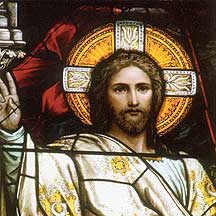







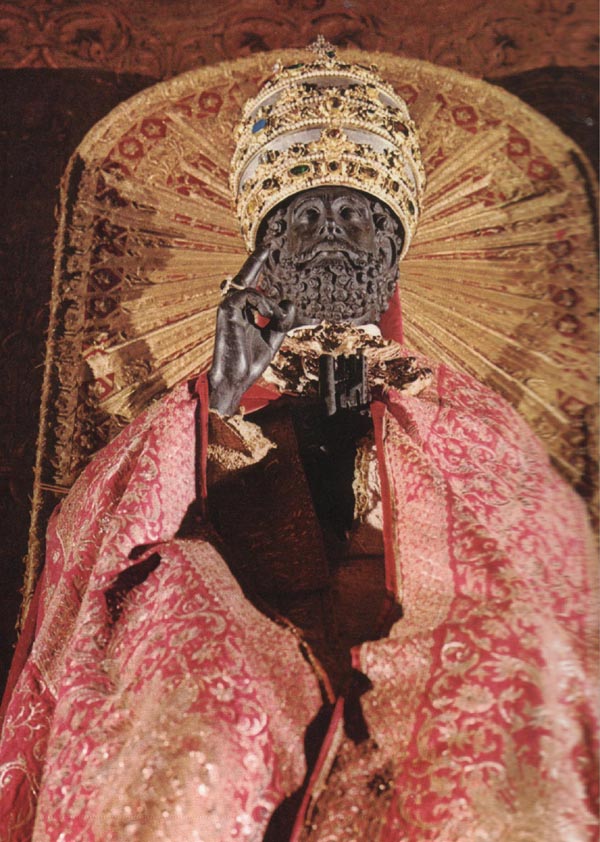
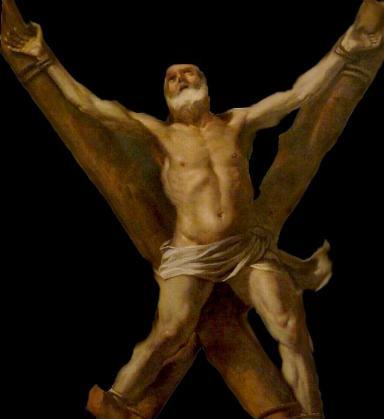




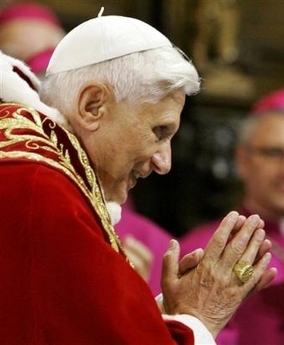






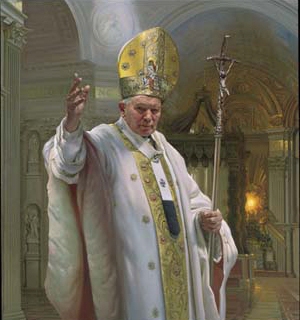
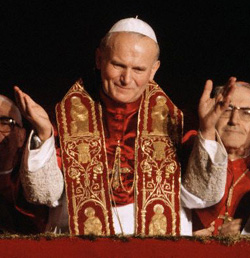
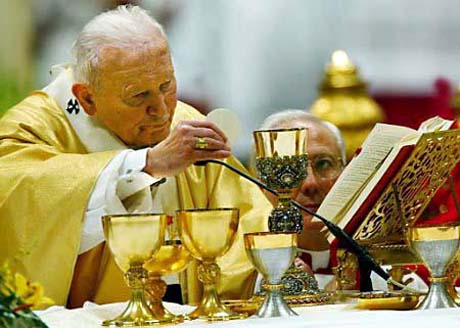







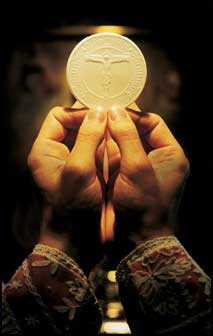
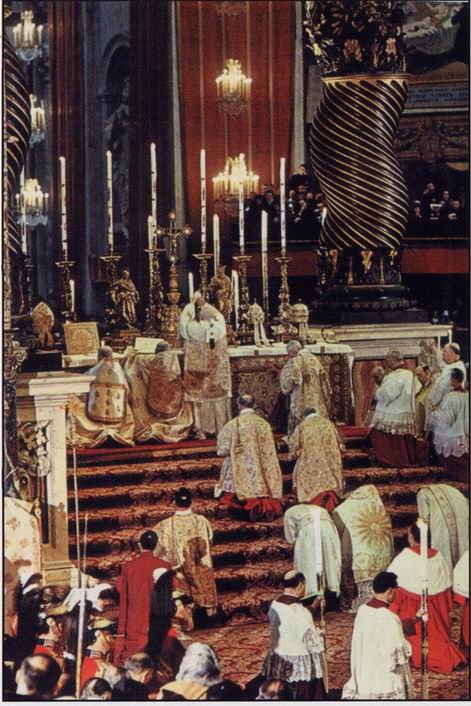

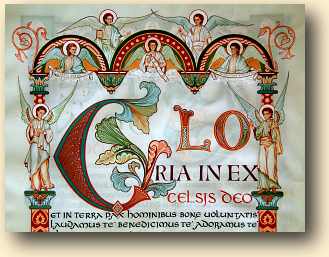

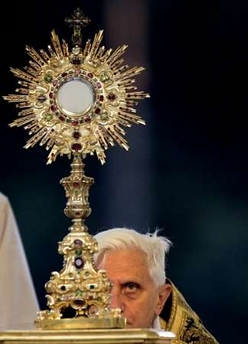


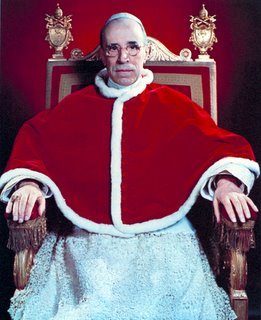




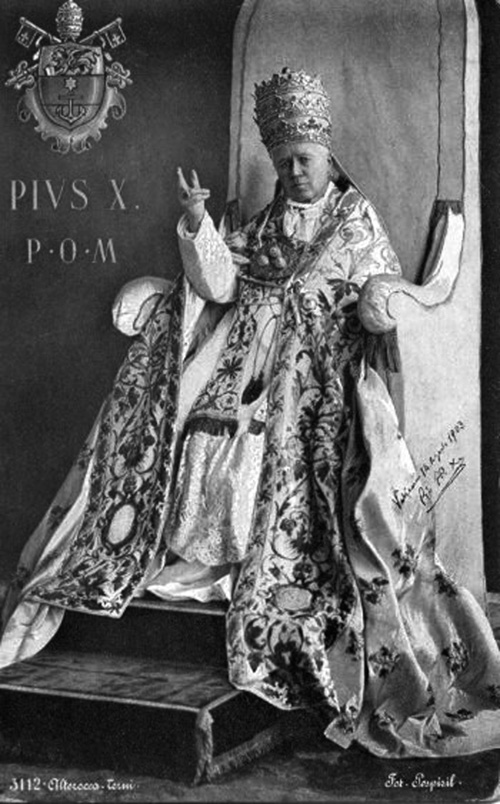



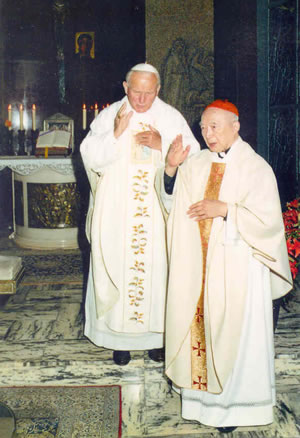






11 comments:
Wow, thought about this much, have you? :-)
VERY interesting; thanks.
Haha...thought about this indeed.
Glad that you find this informative.
Great post. Pope Paul is such a confusing figure. He had the courage to publish Humanae Vitae yet not courageous enough to sternly deal with the dissenters. No wonder so many 'impostor Paul VI' conspiracy stories still prevailed.
Haha...but the sedevacantists have photographic evidence! His nose and ears are different!!
Just kidding. LOL!
Andrew,
The creation of the Family Commission by Pope John XXIII that became the "birth control commission" led millions at that time to feel that they had an input on this issue and many sent their experiences by letter as to their experiences with the not so exact natural method of that time. I was graduating at the time from college. So it was not as though a commission had been established on an infallible matter like the Assumption so as to revoke it.
The implication from Rome was correct...non infallible areas can be reviewable and now Rome was allowing actual laity to have an input. But the creator of that whole process...John XXIII (from a large family)....then died and Pope Paul VI (from a small family by the way like John Paul) inherited the process and unlike John XXIII, he, when he moved from the process and began to write his encyclical... was sending out the opposite implication that birth control was settled.
Well...the sinfulness of interest on a loan was seemingly settled for over six hundred years; natural law was cited in that case (Aquinas copying Aristotle on the natural law aspect despite one scripture to the contrary); Scripture was cited in that case (the ones that worked); exceptions were made for business people with extrinsic titles for risk in entrepeneurial ventures....but loaning your cousin 3000 ducats for his trip to France and taking any interest at all was mortal sin.
Later defenders of the ordinary magisterium (which is not infallible) (like the ordinary universal magisterium is infallible) would argue like Germain Grisez that the Church wisely changed as economies changed. That is emperor's new clothes Catholicism. How then did Calvin arrive at our exact 19th century answer in 1545 in a letter to a friend....accepting our extrinsic titles and interest on loans to the comfortable but condemning such to the poor.
In short, the ordinary magisterium can change and can have errors that last centuries unless someone does open their mouth.
Paradoxically Pope John Paul proceeded to try and change issues of far stronger lineage...the death penalty and mutual subjection only within marriage between husband and wife in both Dignitatem Mulieris and in Theology of the Body in section 89.3.4. Both clearly in the Bible as the opposites of his views whereas Onan as contraception is fading in the new translations which follow the Greek...."whenever Onan went in to Tamar" which implies that God was angry at something far more serious that sexual sins.....Onan was never intending to have children and that risked the non appearance of the Messiah which had to come from one of 4 men in that family and did finally issue in the ancestor...Perez....from Judah's sexual sin FOR WHICH HE IS NOT KILLED IN THE SAME STORY.
Very simple solution.....let a Pope step forward and infallibly define this area. It was done to three moral issues in Evangelium Vitae in sections 57;62 and 65 on abortion, euthanasia and killing the innocent.
I was not clear in the above that John Paul wanted mutual only subjection in marriage (Dignitatem Mulieris, sect.24, par.3&4 and and the Theology of the Body section 89.3-4)....Casti Cannubii and the NT six times call for husband headship along with mutual subjection.
Thanks, Bill, for your well thought out comments. I apologize for the late response as I had been quite tied up the past weekend and I wanted to give you a response befitting the time you invested in preparing your comments. I understand what you are trying to say and indeed the issues you raise are part of a larger set of issues that are 'difficult', including the concept of ensoulment and the teaching that life begins at the moment of conception and how twins fit in which I had raised in an earlier post.
Although I was not specifically addressing the issues which you raise, as this post was aimed at studying how the culture of dissent spread throughout the Church and the part the issuance of Humanae Vitae and the Vatican's response when it was challenged played in fomenting that atmosphere, I would like to briefly respond to several points that you made.
But I also realize that the combox would not be the correct forum for this. As the issue you are raising concerns the development of doctrine and whether doctrinal development in some cases amounts to doctrinal negation.
What I would like to do is to refer you to Dr. Mike Liccione's posts on the Pontifications blog on this very issue as well as some other pertinent issues such as extra ecclesiam nulla salus, limbo and on the freedom of religion proposed by Dignitatis Humanae which would seem to be a reversal of established doctrine. The articles and the discussions and comments that follow would give a better overview of these issues than can be presented in the limited space of this combox.
But do get back to me and let me know what you think of Dr. Liccione's theses.
Thanks again.
Here are the links.
Doctrine: development and negation
Development and Negation II: extra ecclesiam nulla salus
Development and Negation III: limbo
Development and Negation IV: abortion, usury, and religious freedom
Development and Negation V: Marriage
Development and Negation VI: Contraception
Go here to hear a person who was on the birth control commission prior to HV...note the thousands who responded to the commission and note their pedigree:
http://www.findarticles.com/p/articles/mi_m1141/is_n8_v30/ai_14682970
Andrew,
Do not like sites like Pontifications that do not allow comments. That's one of the Church's biggest problems....not facing intelligent opposition in public. Anyone can be all knowing in print. Let your author or our Pope try being all knowing in front of a tv camera with an MIT prof debating you on how can the act be always open to the transmission of life even when what is really open to the transmission of life at all times is the male...not the female and thus not the act.
That's why we don't send missionaries to Harvard and Standford and Oxford to debate high IQ'd people. Instead we send them to compliant non educated people. We have to grow up and begin to face intelligent opposition.
Your author on birth control for example does not cite one real person but dishes out what he imagines are the objectors and their objections. He gives no cites of actual people who said anything. On usury he ignores the section wherein Aquinas indeed quoted scripture on interest and embarassingly misintepreted one that promised the Jews they would "fenestrate to all nations"....wherein Aquinas still maintained that it would be a sin when they did. And your author had to have seen it because it is right near the sections he did quote. Beware the world of internet publishing. And read the above link to Pat Crowley of the Birth control Commission who sent thousands of questionaires to people who were obedient to Rome on the then inaccurate natural methods and how those sincerely dissenting letters from obedient people changed 90% of the theologians on the commission.....and how she never heard from Rome at all after she left her work on the commission. Community anyone? And do some research on why John Paul was appointed to the commission at the time (with his previous name) and yet never showed up and yet proceeded to write Paul VI on his own views....open dialogue anyone?
Above mispelling: fenestrate should read "fenerate to all nations."
Bill,
This would not the the correct forum to debate the beginning of life, so I won't address that.
Human experience is not the final arbiter of truth and neither is an appeal to emotionalism. Proponents of the death penalty do it all the time on much more solid grounds, but it would still be wrong given the advancement of society today.
The Church does face intelligent opposition, and face it sucessfully. The Catholic Church has a great tradition of debate and dialogue, within and without the Church. She has sent missionaries to evangelize the nations and some of those end up debating Muslim, Buddhist and Hindu apologists in the course of their missionary activity long before MIT or what have you. Even today, the tradition of public debate is upheld by Catholic apologists against Muslims, Protestants, liberals, atheists and all other challengers of the Faith.
But I would have to disagree with you about the effectiveness of a live TV style debate. There is a limitation to such things, to how much one can say and the clarity with which it can be said. Such debates are often won by the fiery oratory and appeals to emotionalism rather than result from well thought out and defended arguments.
Ultimately though, the point this post was trying to make was the reluctance of the Vatican is disciplining the internal opposition, to upholding its own position has severely and irreparably damaged its authority in the eyes of the whole Church, from the laity upwards. And this crisis of authority is one of the factors that has shaped the confusion that is the Church of today.
Surely that point cannot be denied?
Post a Comment